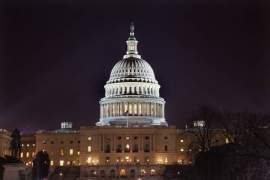
Federal Laws: What you Must Know

Popular In Federal
Code Of Federal Regulations Federal Unemployment Extension Federal Tax Return Status Meat Inspection Act Federal Tax Forms Federal Tax Brackets Government Grants Federal Funds Rate Meat Inspection Act Text Federal Rules Of Civil Procedure Federal Reserve Act Federal Acquisition Regulation
What are Federal Laws?
• Federal laws are the bodies of law created by the federal government of a nation; for instance, the United States Federal Government drafts, administers and enforces all federal laws in America.
• A federal government is formed when political entities, such as states or provinces, join together to a form an organization or federation. This agglomeration effectively surrenders the entity’s individual sovereignty and other powers to the newly-formed central government. That being said, the entities, retain or reserve some powers; in the United States. Each individual state operates and enforces local laws through a separate governing body. As a result of federal laws and the distinction from local laws, countries such as the United States, possess two or more levels of government exist within an established territory.
• Examples of federal governments include those in Brazil, the United States, the Soviet Union, Russia, India, Germany and Canada. The body of law of these nation’s central governments is referred to as federal law. Federal Laws in the United States:
• Federal laws in the United States were established in the nation’s Constitution. This framework provides federal laws and the general principle that the federal government of the United States is superior to local governments with regards to enumerated powers.
• Enumerated powers refer to the ability to govern international affairs, the control of currency and the authority over the national defense units. Following the American Civil War, legislators tinkered with the Fourteenth Amendment to the United States Constitution and subsequently applied the Bill of Rights to local governments. As a result, all issues that arise under legislation passed by Executive Order of the President, a decision of the federal court system (pursuant to the Constitution) and by Congress, are unilaterally governed by federal laws.
• The United States Supreme Court institutes all final decisions regarding federal laws; all federal laws in the United States are officially codified in the United States Code.
NEXT: Federal Reserve Act




















